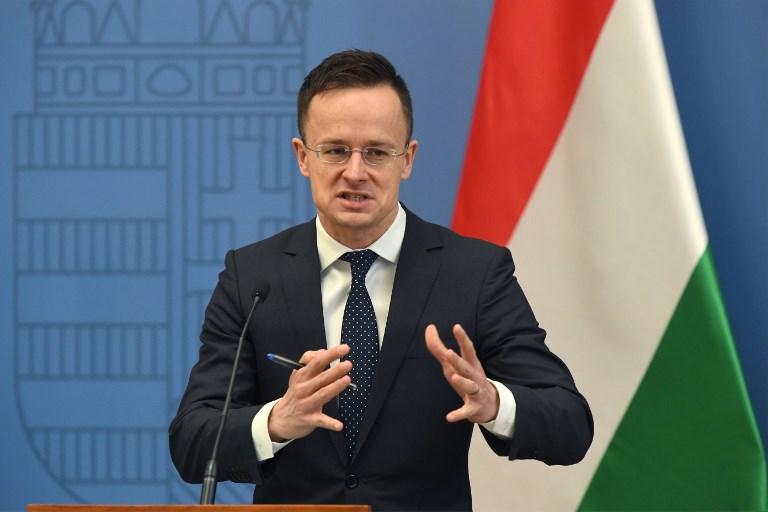The Hungarian language must have an official status in Ukraine, and its status as a regional language in Zakarpattya Oblast, where more than 100,000 ethnic Hungarians live, must be returned, Hungarian Minister Péter Szijjártó said in an interview with the European Pravda news website on June 25.
“According to international law, national minorities can’t be stripped of the rights they have already been given,” Szijjártó said.
The Hungarian minority accounts for around 10 percent of the 1.2 million population of Zakarpattya, Ukraine’s smallest western oblast on the border with Hungary.
“The previous version of the law read if a minority was up to 10 percent of a region’s population, that allowed its language to become one of the official languages in a village, city, district or town, where minority members make the majority of the local population” Szijjártó said.
“The new language legislation (adopted in September), increases that to 33 percent of the population. Of course we will oppose such changes,” the minister added.
Szijjártó has been one of Ukraine’s fiercest critics since September, when the Ukrainian parliament approved legislation that makes Ukrainian the only language of education in the country’s state schools.
Although the new language law was aimed mostly at cutting the influence of the Russian language, it angered many of Ukraine’s neighboring countries, who saw it as a move to suppress their national languages as well.
While tensions with Poland and Romania on this issue have been resolved diplomatically, Russia and Hungary have been using the language law to claim Ukraine is discriminating against national minorities.
As Russia did in eastern Ukraine, Hungary is extending its influence in Zakarpattya, and the nationalist government in Budapest has been accusing Kyiv of suppressing Ukraine’s Hungarian minority.
Hungary has dropped its objections to Ukraine’s participation in the upcoming NATO Summit in Brussels in July, Szijjártó told the journalists during his visit to Zakarpattya on June 22 after a meeting on the education legislation with Ukraine’s Education Minister Liliya Hrynevych and Ukraine’s Foreign Minister Pavlo Klimkin.
“Russia’s growing presence in the Black Sea will be discussed (during the summit),” Szijjártó said.
But Hungary will still block all NATO-Ukraine Commission meetings until Ukraine makes amendments to the new education law, he said.
In return, Klimkin said Ukraine would make changes in the legislation, in particular, will include the training for teachers of the more than 90 Hungarian public schools in Zakarpattya, and much more. Ukraine has already promised to postpone the implementation of the language legislation until 2023.
Kivalov-Kolisnichenko law
Hungary preferred the 2012 language law, co-written by now disbanded Party of Regions members Serhii Kivalov and Vadim Kolisnichenko, along with Hungarian Democratic Union of Ukraine party member Mikhail Tovt.
The legislation, dubbed “the Kivalov-Kolisnichenko law,” allowed a national minority’s language to be granted official status in regions where a minority accounts for up to 10 percent of a region’s population. However, it was canceled on Feb. 28 after the Constitutional Court of Ukraine ruled it to be unconstitutional.
Hungary in turn claimed that the cancelation of the law would suppress the rights of the Hungarian minority in Ukraine.
Szijjártó even described it as “a brutal attack by Ukraine’s authorities.”
The Hungarian foreign minister told European Pravda that Hungary understands that the Ukrainian government wanted the new legislation in order to decrease the influence of the Russian language in Ukraine.
But it had a negative impact on the Hungarian minority in Ukraine as well, he said.
“One question: If the law is about the Russian language, why have we, Hungarians, been involved in this conflict, when we don’t want to be?” Szijjártó said.
“I have a strong feeling that Hungary has just got caught up in the crossfire. But whether it was intentional or not, Ukraine’s actions have a negative impact on us,” the politician added.
Read the Kyiv Post story on the historical roots of the modern tensions between Hungary and Ukraine: Heat from Hungary. How Transcarpathia’s Hungarian past set up its tumultuous present.



